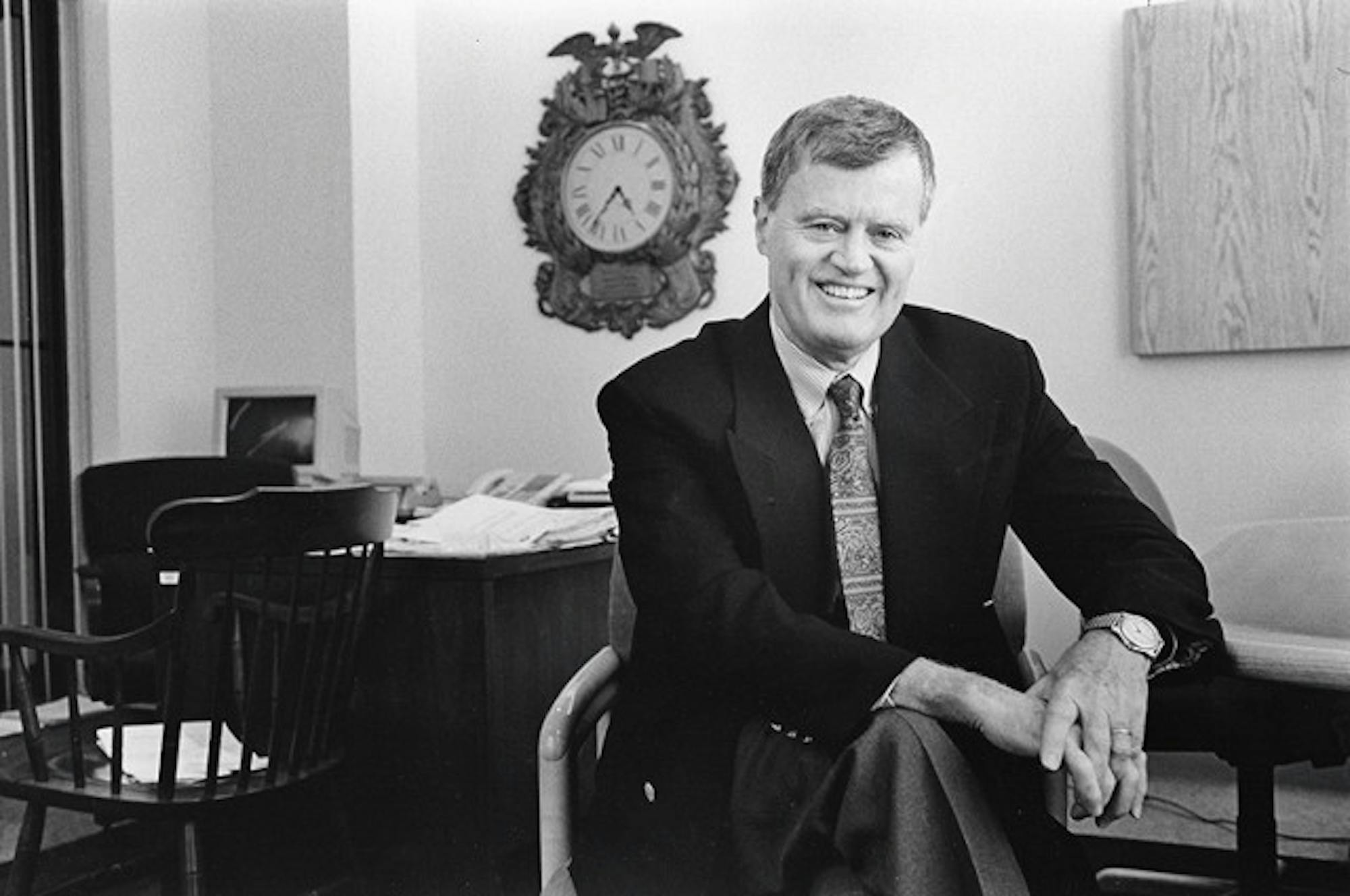John T. Harrington, dean emeritus of the Tufts University School of Medicine, passed away on Oct. 31.
According to a Tufts Now article, Harrington completed his residency at the University of North Carolina at Chapel Hill before receiving training in nephrology at the Tufts-New England Medical Center (NEMC), and eventually joining the nephrology division. From 1981 to 1986, Harrington served as the chief of general medicine of Tufts-NEMC, the precursor to Tufts Medical Center, and later became chief of medicine at Newton-Wellesley Hospital. Harrington was dean of the Tufts School of Medicine from 1995 to 2002. Harrington also served on the editorial board of the New England Journal of Medicine, the article noted.
University Professor Emeritus and Former Provost Sol Gittleman discussed Harrington’s legacy as a doctor, administrator, teacher and friend.
“He was just one of the most delightful people ever you could work with. In higher education none of us is trained to have what they call 'emotional intelligence,' how to get along with people,” Gittleman said. “John had it intuitively.”
Gittleman emphasized Harrington’s ability to lead by getting along with everyone he worked with.
“He was just a charming, delightful, easy-going and yet very effective leader,” Gittleman said.
Gittleman praised Harrington’s record of achievement and his key role in the establishment of theJaharis Family Center for Biomedical and Nutrition Sciences, which functions as a research space for the Friedman School of Nutrition Science and Policy and the Sackler School of Graduate Biomedical Sciences.
“I think his biggest accomplishment at the medical school was the big building of the research building called the Jaharis Family Center,” Dean of the School of Medicine Harris Berman said. “That really elevated the facilities for doing world-class research from warehouses we’ve used over the years to a building built just to do this.”
Nephrologist and Professor of Medicine at the Tufts School of Medicine Andrew Levey worked personally with Harrington from the time Levey arrived at Tufts in 1979 until Harrington retired.
“After he left from being dean, he came back to Tufts Medical Center and had a position in the Department of Medicine and then a position in the Division of Nephrology,” Levey said.
Berman elaborated on Harrington’s wide range of experience and numerous contributions to the field of nephrology.
“He was probably best known for his work as a nephrologist, and he was part of a group of kidney doctors here at Tufts Medical Center who really were internationally known for the discoveries they made and advancing the treatment of renal disease,” Berman said.
Gittleman explained that during Harrington’s time as dean, the healthcare field in the Boston area was undergoing a period of transition. Gittleman said that Harrington navigated these changes smoothly by facilitating cooperation between the medical school and the hospitals.
“John was able to deal with the hospital leadership which was in a crisis of its own, and make things happen and work together. It was a very very difficult and important transition time for the future of the medical school,” Gittleman said. “We had the right man at the right time.”
Levey said that Harrington prioritized patient care throughout his entire career and that he learned valuable skills from the way Harrington conducted himself as a clinician.
“He was a wonderful teacher," Levey said. "He had a reputation for excellence in patient care and teaching generations of trainees in medicine and nephrology how to take care of patients with kidney disease."
Moreover, Levy explained that he had a knack for explaining complicated subjects in a clear and approachable manner.
“He gave quick and clear answers and treated everybody completely fairly,” Levey said. “I got to see him move up in positions throughout the school and throughout the hospital. He never changed ... He didn’t become more stuffy or highfalutin or difficult to approach.”
Gittleman also spoke about Harrington’s sincere commitment to his patients.
“He was the doctor that other doctors went to ... He always took on any patients. He never said no,” Gittleman said. “He was a terrific clinician, a terrific diagnostic doctor ... he had a bedside manner that you just don’t see anymore.”
Out of the hospital setting, Gittleman described Harrington as a family man with strong ties to Boston.
“He loved Ireland, the Red Sox and his family. Family always came first. That’s who he was,” Gittleman said.
Gittleman added that Harrington’s humanity and the personal investment he had in his work and in his patients set him apart and enabled him to succeed.
Levey echoed this point and explained that Harrington always treated people with a smile and a sense of humor, and had great respect for his colleagues. Above all, Harrington was defined by his dedication and loyalty to his family and friends.
“This really shines through if you speak with anyone. His devotion to his wife and his kids, [who] were really the pride of his life,” Levey said. “So in all respects he was just a remarkable person and a treasure for me to have spent so many years with.”
Former Dean of Tufts School of Medicine John T. Harrington dies

John T. Harrington at the Tufts School of Medicine in 1996. Harrington, who was an acclaimed doctor and educator during his career at Tufts, passed away on Oct. 31.





